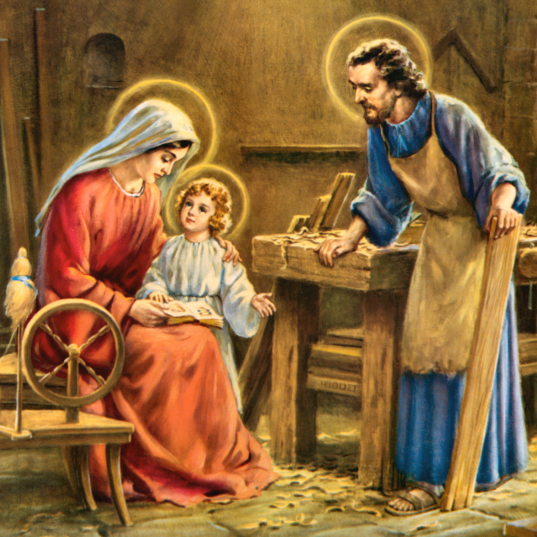
In addition to being the foster-father of Jesus and the spouse of the Blessed Virgin Mary, St. Joseph was a carpenter. Through his work of manual labor, he provided for the Holy Family and had a role in the divine plan of salvation.
St. Joseph is mentioned in the Gospels of Matthew and Luke, and briefly in the Gospel of John. Probably by the time Jesus began His public life, St. Joseph had already died, although we don’t know exactly when or where.
The life of St. Joseph shows us the dignity of human work, which is the duty and the perfection of human beings. Though human work, human beings exercise dominion over creation, share in the work of the Creator, offer their service to the community, and participate in God’s plan of salvation. As a just man (cf. Matthew 1:19), St. Joseph was a man of faith who was content in his work and did not aspire for wealth; his work was not a means to satisfy his own greed, but an instrument to support his family.
The feast day of St. Joseph the Worker was officially instituted by Pope Pius XII on May 1, 1955 as a reminder for workers not to lose this Christian understanding of work. The Memorial of St. Joseph the Worker is observed annually on May 1st.